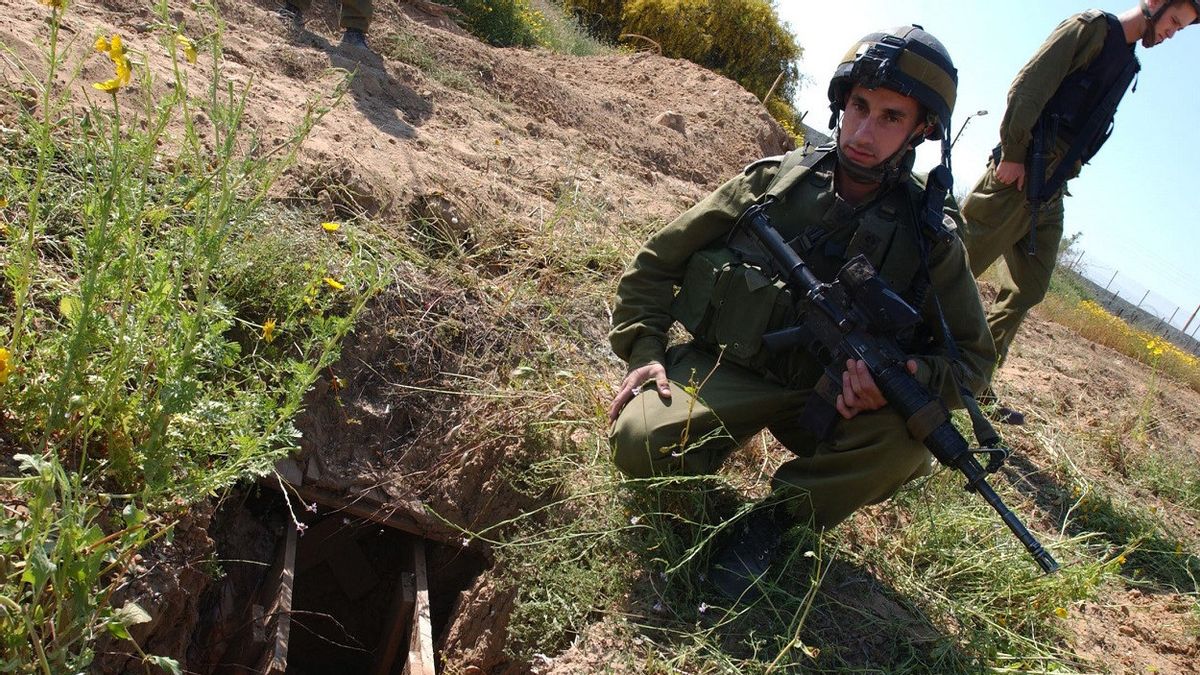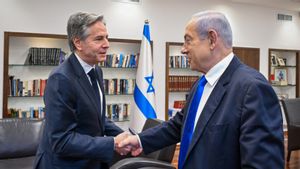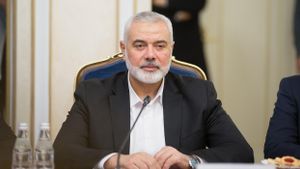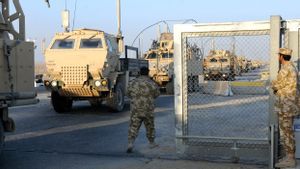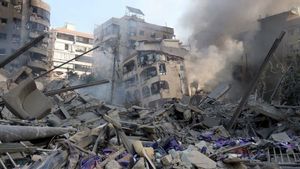JAKARTA - Egypt has rejected Israel's proposal to carry out monitoring in the Egypt-Gaza border buffer zone in talks, prioritizing efforts to broker a ceasefire before making post-war arrangements, three Egyptian security sources said.
Egyptian sources said that during the talks Israel had approached Egypt about securing the Philadelphi Corridor, a narrow buffer zone along the border, as part of Israel's plan to prevent future attacks.
An Israeli official who spoke on condition of anonymity said joint monitoring of the Philadelphi Corridor with Egypt was one of the issues the countries had discussed.
When asked whether Egypt refused, the Israeli official said: "I'm not aware of that," as reported by Reuters January 10.
Meanwhile, Al Qahera News, which is linked to the Egyptian government, quoted an anonymous source on Monday as saying that recent reports regarding plans for cooperation between Egypt and Israel in the corridor were false.
The head of Egypt's State Information Service did not respond to a request for comment.
Egyptian sources said that Israeli officials did not discuss controlling the corridor during the current ceasefire negotiations, but instead asked to participate in monitoring the area, including by sharing the use of new monitoring technology that Israel will acquire.
Egyptian negotiators rejected the idea, but Egypt has strengthened physical barriers on its side of the border, the sources said.
Egypt is prioritizing reaching a new ceasefire agreement as a necessary basis for discussions on post-war Gaza, including securing the corridor, the source added.
Egyptian Foreign Minister Sameh Shoukry said on Tuesday that Gaza's priorities were a ceasefire, sending aid and preventing the movement of Gazans to Egypt.

Underground Tunnel
Israel controlled the Philadelphi Corridor until 2005, when it ended its occupation of the Gaza Strip. Hamas took control of Gaza in 2007.
Late last month, Israeli Prime Minister Benjamin Netanyahu said Israel was seeking to reassert control over the corridor, where Palestinians have long run underground tunnels.
The number of tunnels began to increase in 2008, when Palestinian smugglers and militants used them to circumvent Israel's economic blockade and bring weapons into the region.
But an Egyptian military campaign that began in 2013 succeeded in destroying most of the tunnels, Palestinian sources said.
"Egypt has stated clearly that it is closing all tunnels on its side of the border, but Israel still cannot absorb or understand that what they are seeing in Gaza may be local production or development," explained Ashraf Abu el-Houl of Egypt's state-owned newspaper Al -Ahram and specialist on Palestinian issues.
Abou el-Houl said Israel could effectively control the border buffer zone from afar through its weapons, without needing to take direct control.
SEE ALSO:
It is known that Egypt shares a 13 km (8 mile) border with Gaza, which is the only border of the Palestinian coastal region that is not directly controlled by Israel.
On the other hand, along with Qatar, Egypt also played a leading role in talks to broker a ceasefire in Gaza, as well as securing a deal for the release of Israeli hostages held by Hamas.
The English, Chinese, Japanese, Arabic, and French versions are automatically generated by the AI. So there may still be inaccuracies in translating, please always see Indonesian as our main language. (system supported by DigitalSiber.id)
